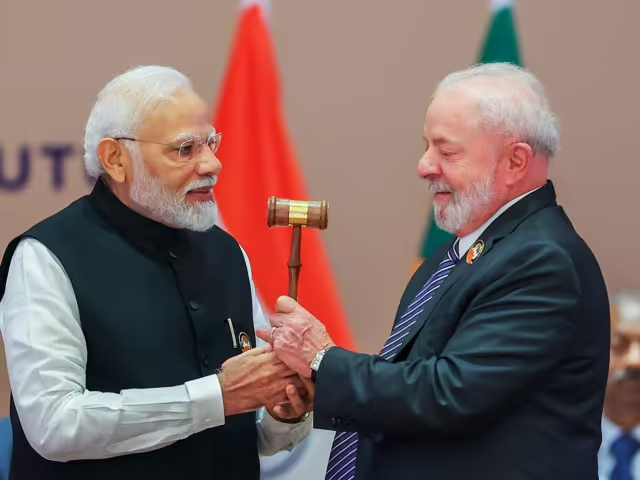Lula Declines Trump’s Offer Amid Tariff Dispute
Brazilian President Luiz Inacio Lula da Silva has declined an offer from US President Donald Trump to discuss tariffs, opting instead to utilize international resources like the World Trade Organisation (WTO) to defend Brazil’s interests. This decision comes in response to escalating tensions between Washington and Rio de Janeiro, following the US imposition of a 50% tariff on Brazilian goods. Trump justified this move as a countermeasure against what he termed a “witch hunt” targeting former Brazilian President Jair Bolsonaro, who faces charges related to an alleged coup attempt after his 2022 election defeat.
Strengthening Ties with BRICS Nations
Lula described the day the tariffs were imposed as a “regrettable” moment in US-Brazil relations. He emphasized Brazil’s proactive measures to bolster foreign trade with other nations, particularly BRICS partners. The Brazilian leader expressed his intention to engage directly with leaders like China’s Xi Jinping and India’s Prime Minister Narendra Modi, while excluding Russian President Vladimir Putin due to travel restrictions.
Invitation to COP30 Despite Tensions
Despite the strained relations, Lula extended an invitation to Trump for COP30, the UN climate change conference scheduled for November in Belem, Para. Lula stated that he would personally invite Trump to discuss climate issues, underscoring Brazil’s commitment to diplomacy and dialogue.
Call for Fair Trade and Mutual Respect
Lula reiterated Brazil’s openness to negotiating tariffs with the US, provided discussions occur on equal terms and with mutual respect. He affirmed Brazil’s dedication to national sovereignty and fair trade practices.
Trump’s Open Line of Communication
Trump had previously stated that Lula could contact him anytime regarding tariffs and bilateral issues. However, Lula’s decision reflects a strategic pivot towards strengthening alliances within the BRICS coalition, which the US views as challenging its economic influence.
